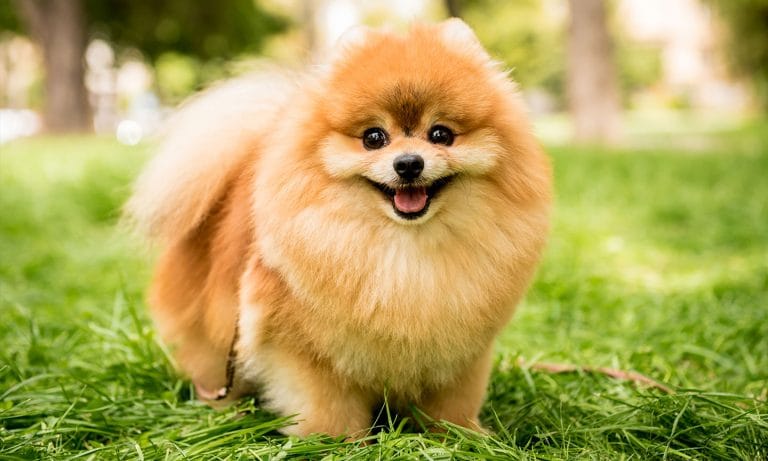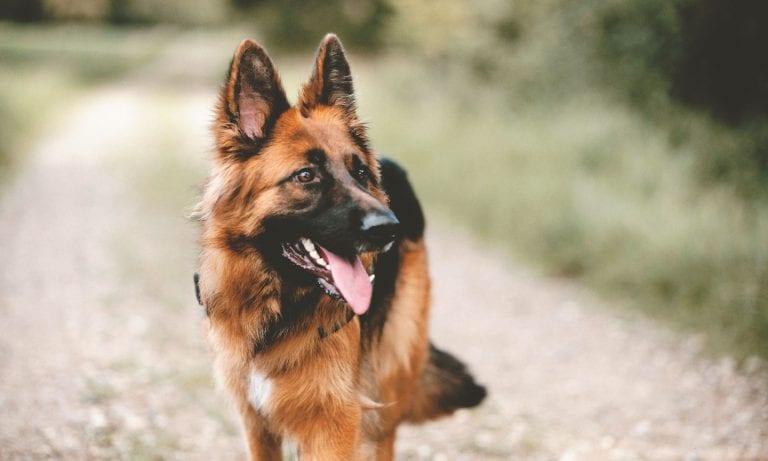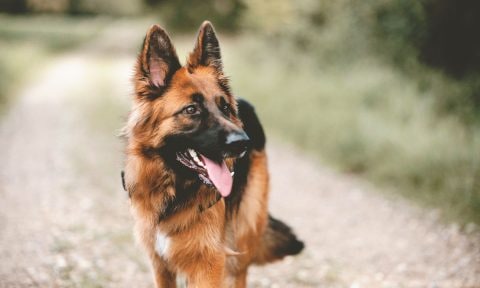Pomeranian vs German Shepherd

Breed Snapshot
Best For
Cuddly and compact, Pomeranians thrive on attention and play. With a vibrant personality and moderate exercise needs, these affectionate companions are perfect for anyone seeking a lively companion who flourishes with love and quality time...
Cuddly and compact, Pomeranians thrive on attention and play. With a vibrant personality and moderate exercise needs, these affectionate companions are perfect for anyone seeking a lively companion who flourishes with love and quality time together.
Pomeranian Temperament
Happy-go-lucky is a Pomeranian’s middle name, as their personality is equal parts friendly and inquisitive. They live for social interactions and to make their pet parents laugh out loud. If you have kids at your house, you’ll be glad to learn that aggressiveness isn’t typically...
Happy-go-lucky is a Pomeranian’s middle name, as their personality is equal parts friendly and inquisitive. They live for social interactions and to make their pet parents laugh out loud.
If you have kids at your house, you’ll be glad to learn that aggressiveness isn’t typically in this dog’s nature. Pomeranians aren’t known to be biters, although any dog may snap if provoked. So, teach children to handle dogs with care, and keep a close eye on toddlers and preschoolers who may accidentally drop or clutch this fluffy furball too tightly—it’s easy to mistake a tiny Pomeranian for a favorite stuffed animal. Still, this breed is known to be rather compatible with their extended family, whether it includes other dogs, cats or children.
Not only do they have the looks, but also the smarts. Poms have competency in spades and they’re adept at picking up fun new tricks. If you’re hoping to try obedience classes with your Pomeranian, this breed is keenly intelligent and likely to get good grades!
Not surprisingly, the Pomeranian excels at jobs such as work as a therapy dog and is also known to make a fine watchdog since they’re not afraid to bark. And if looking absolutely adorable is considered a type of employment, then a Pom fills this requirement too—and you should hire this fur baby, pronto!
Pomeranians are sometimes described as cocky, which likely refers to their proud gait and bouncy personality. Smart, perky and alert to everything around them, the Pomeranian breed’s generally positive temperament makes them worthy of top-dog status in many types of families.
Pomeranian Traits

Breed Snapshot
Best For
German Shepherds, intelligent and loyal, thrive on mental challenges and active engagement. With a strong work ethic, they make exceptional working dogs. The rewarding companionship of a German Shepherd is perfect for those seeking a...
German Shepherds, intelligent and loyal, thrive on mental challenges and active engagement. With a strong work ethic, they make exceptional working dogs. The rewarding companionship of a German Shepherd is perfect for those seeking a devoted and versatile pup.
German Shepherd Temperament
The German Shepherd’s best trait is their intense, unwavering loyalty to their families. (There’s a reason they make some of the best police dogs.) The fearless breed has also been known to put themselves in harm’s way before they let a family member get hurt. Socializ...
The German Shepherd’s best trait is their intense, unwavering loyalty to their families. (There’s a reason they make some of the best police dogs.) The fearless breed has also been known to put themselves in harm’s way before they let a family member get hurt.
Socialization and training are essential for German Shepherds, to teach them that most things in this world are nothing to fear (and nothing that poses a threat to their loved ones, either). Early social interactions with kids, babies and other animals is also important if you want your German Shepherd to be well-behaved around guests. (Remember to teach children how to interact appropriately with dogs, too.) With the proper education, this easy-to-train pup can be a great family dog.
German Shepherds are born talkers. They will bark when they’re bored, and they’ll bark to alert you if something isn’t quite right. But training and exercise can help curb a lippy pup and keep their barking to when you need it the most.
These dogs are incredibly smart, and they are at their best when they have a job to do, whether working as a police or military dog, doing tracking or search and rescue, serving as a guide dog or at home practicing scent work or solving puzzles for a treat. And when they’re with their family, German Shepherds will let their silly side show as they flip their toys in the air and roll around on their backs.




